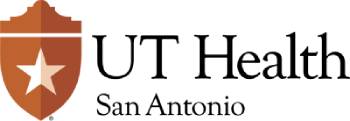It was at once very familiar and all its own: a stage, caps and gowns, smiling graduates and a cheering crowd. But the setting was an off-duty nightclub just outside the Haitian capital of Port-au-Prince. Caps and gowns were often homemade and sometimes held together by duct tape. Graduates ranged from the very young to the very old.
The specific achievement being celebrated was entirely new to this part of the world and, yet, critically important: Each of the 430 graduates receiving a certificate this February day had completed a six-month curriculum through one of 17 Community Health Clubs across their city.
Developed in sub-Saharan Africa, Community Health Clubs are now bringing Caribbean communities together to prevent the spread of disease. There, they are facilitated by local community organizers in partnership with the Center for Medical Humanities & Ethics, part of the Long School of Medicine at the UT Health Science Center.
Three from the Center for Medical Humanities & Ethics traveled to Haiti for the graduation: director Ruth Berggren, M.D., FACP; Jason Rosenfeld, M.P.H., assistant director of global health; and academic and global health program coordinatorStephanie Gutierrez.
The mood was ecstatic. People traveled from muddy slums all over Port-au-Prince carefully groomed and meticulously attired, including one club of young girls in pristine white dresses, ruffled socks and patent-leather shoes. The fervent crowd broke out in call-and-response chants. Each club performed health-themed Creole skits or songs for a crowd of roughly 2,000. A candlelight ceremony was held to remind graduates not to let the light of their newfound knowledge go out.


These clubs are turning a traditional Haitian proverb on its head: “Zafè Kabrit pa Zafè Mouton” translates to “The goat’s business is not the sheep’s business.” In Haiti, where a cholera outbreak has killed thousands and underscored deficiencies in water and sanitation systems, that mindset of minding your own business can be deadly. Accordingly, the health clubs have adopted a variation as their unifying slogan: “Zafè Kabrit se Zafè Mouton,” or “The business of the goat IS the business of the sheep.”
“Community matters everywhere, but in Haiti it’s essential,” said Dr. Berggren, an infectious disease specialist. “How your neighbors deal with standing puddles of water and piles of trash, even how and where they relieve themselves, can determine whether your child gets sick. Community Health Clubs show neighbors how to look out for each other, and demonstrate the virtuous cycle that can follow.”
Dr. Berggren and Rosenfeld bring together a unique combination of skills and experiences. Rosenfeld is a behavioral scientist with six years of experience in Africa, three of those in South Africa and Zimbabwe with Africa AHEAD, the organization that pioneered the approach.
The daughter of two public health physicians and an infectious disease specialist, Dr. Berggren grew up in Haiti from ages 4 to 14. She brings deep understanding of Haiti’s health challenges and culture, as well as language fluency and programmatic expertise.
In Haiti, a typical meeting begins with the club chanting its slogan: “health is wealth.” There are always crowd-warming “animations”: lighthearted dances, funny skits and songs. A facilitator asks whether homework is complete—perhaps changing a household practice. Then they launch into the new session, distributing picture cards and tackling a theme: sanitation, drinking water, hand washing and more.
It’s difficult to isolate the health impact of the clubs from other forces at work in a community. But Rosenfeld and Dr. Berggren are encouraged by knowledge increases and behavior changes they see, and are working on ways to better quantify the impact.

They are also working to extend their reach. Because students can’t visit Haiti due to a State Department travel warning, Rosenfeld traveled with medical students to the Dominican Republic to introduce the Community Health Club concept and conduct needs assessments. They went house to house, speaking to residents and making observations: Did the house have a latrine? How were food and water stored?
One student, Matt Mullane, described it as a defining experience that will strongly influence his career: “One of the big drives right now is for medicine to reconnect with communities. To do that, we need to understand how to approach communities and to see how community life influences health.”
From there, local partners were identified: Jude François and Marie Ruthza Flavienne Vincent in Haiti, and the nonprofit Children of the Nations in the Dominican Republic.
Rosenfeld took the African curriculum—picture-based, so it can be used when illiteracy is widespread—and, with Dr. Berggren and local artists, adapted it to its new context.
Next up: Medical student Samy Bendjemil’s plan to take the clubs to Burkina Faso, Africa, earned a prestigious Fulbright U.S. Student Award. He laid groundwork during a previous global health trip with guidance from Dr. Berggren and Rosenfeld.
And there are plans to adapt the clubs to San Antonio, where they could be used to promote healthy lifestyles or address chronic problems like diabetes and obesity.
“I think the potential is great,” Rosenfeld said. “I have enough confidence in the model that, once we find the right people to implement it, I believe it will take off.”
See more photos of the Community Health Club graduation in Haiti.
[pexyoutube pex_attr_src=”https://www.youtube.com/watch?v=PhbqPmXCdj4&feature=youtu.be”][/pexyoutube]
